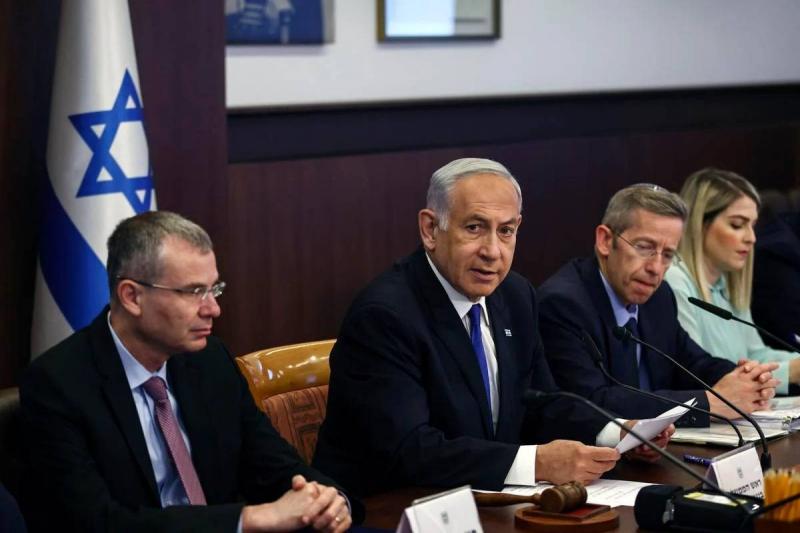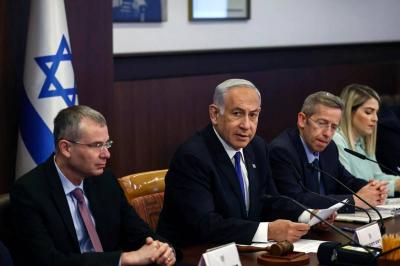Israeli Prime Minister Benjamin Netanyahu intensified threats to attack Iranian nuclear facilities today, Sunday, holding a rare meeting of the security cabinet in an underground command room to simulate decision-making during a potential multi-front war. This came after Netanyahu accused UN inspectors of failing to confront Iran. With Iran enriching uranium to a purity level of 60%, enough to produce two nuclear bombs if the purity increases—something Iran denies having any desire or plan to do—Israel has escalated its threats of preemptive military strikes if international diplomacy fails to stop Iran. Israel has continuously asserted that the success of diplomacy requires confronting Iran with credible military threats.
Netanyahu stated in a video message from the fortified operations command room at the military headquarters in Tel Aviv, "We are committed to acting against (Iran's) nuclear efforts and against rocket attacks on Israel and the possibility of opening these fronts simultaneously." Surrounded by security cabinet ministers and military leaders, Netanyahu remarked that the possibility of entering a multi-front war requires Israeli leaders "to think, if possible, ahead" about key decisions. Netanyahu's office released footage of the security government's training to prepare for decision-making during wartime.
Earlier, Netanyahu accused the International Atomic Energy Agency (IAEA) of failing to monitor Iran's nuclear activities, noting that the UN agency risks becoming politicized and thus losing its significance. These unusual criticisms followed a report released by the agency last week, which indicated that Iran provided a satisfactory response regarding the discovery of suspected uranium particles and that it had restored some surveillance equipment originally installed under the now-defunct 2015 nuclear deal.
Netanyahu stated, "Iran continues to lie to the IAEA. The agency yielding to Iranian pressure is a stain on its record." He added, "If the IAEA becomes a political organization, its regulatory activity in Iran and its reports on Iranian nuclear activity will be meaningless." The agency had mentioned last Wednesday that after investigations with no progress over the previous years, Iran provided a satisfactory response regarding the finding of uranium particles at one of the three sites being investigated. A senior diplomat in Vienna stated that the presence of these particles could be explained by the existence of a laboratory and a mine dating back to the Soviet era there, indicating that the IAEA had no further questions.
In a clear reference, Netanyahu said, "Iran's explanations ... concerning the discovery of nuclear materials at prohibited sites cannot only be trusted, but they are also technically impossible." However, the senior diplomat added in an interview with Reuters that the IAEA's assessment still holds that Iran conducted explosive tests there decades ago related to nuclear weapons. After former U.S. President Donald Trump's withdrawal from the Iranian nuclear agreement in 2018, Tehran increased its uranium enrichment. Israeli and Western officials say that Tehran could transition from the 60% enrichment level to the 90% needed to produce nuclear weapons in a matter of weeks. However, experts are divided on whether Israel, which has a sophisticated military believed to be nuclear-armed, can inflict lasting damage on Iran's sprawling and well-protected facilities.
Israeli Energy Minister Israel Katz said, "If we reach the decision point where the options are either Iran possessing a bomb or us taking action, our decision will be to take action." Katz, a member of the Israeli security cabinet, stated in radio remarks, "We are making all preparations at this very moment."




